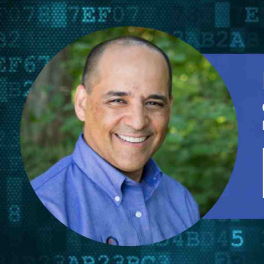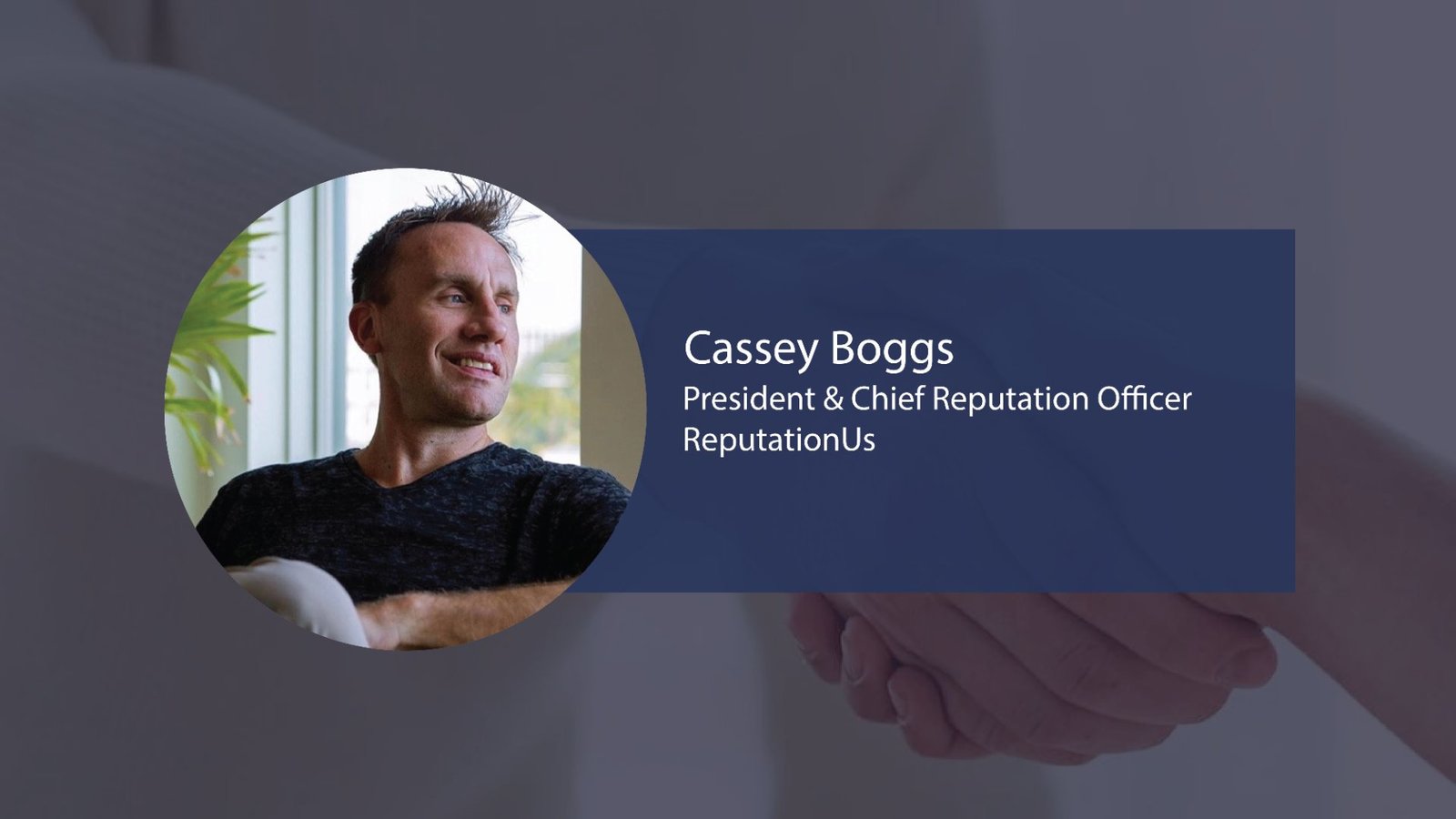Blue Ocean: Reputation management has become an important component for most businesses. How do you define reputation management and why do you think it’s important for companies of all sizes?
Casey: Simply put, we define brand and reputation differently. Brand is what you say about your company. Reputation is what others say (or don’t say) about your company and/or your competition. Therefore, reputation management is an exercise in listening and being vigilant about factors that may directly impact your company’s reputation. It’s critical that someone (or a team) is deputized to enhance, advance, and protect the overall reputation of the organization.
Blue Ocean: Your firm, ReputationUs, states that “We enhance the reputation that precedes your organization, before a crisis defines your organization.” Please explain this approach and philosophy.
Casey: Too often companies and leaders wait for a crisis to adversely impact the core of their organization before they finally focus on the reputational ramifications. At our firm, ReputationUs, we ask “What if you stockpile goodwill and strengthen your reputation by having strong people, products/services, and processes? If a crisis does hit, there will inevitably be less of an impact on the trust that has been built.” This “enhancement” mitigates damage during a crisis, and ultimately protects the bottom line.
Blue Ocean: Who within an organization is ultimately responsible for reputation management? Is it more than one person? Is it the marketing department’s responsibility or is it higher up?
Casey: If an organization is large enough, the job of daily reputation management can be assigned to one person—the Chief Reputation Officer (see below responsibilities). For most companies, this can be a team effort or a committee designed to be overseers of the company’s most valuable asset. If this reputation management task is handled by a committee, DO NOT consider it a marketing-only function. Rather, this management position is a hybrid, involving HR, operations, technology, finance, customer service, community affairs, and marketing.
Related
Blue Ocean Global Technology Interviews CEO Kip Boyle of Cyber Risk Opportunities, LLC

Blue Ocean: You advocate for businesses hiring a “Chief Reputation Officer” and the CRO having a seat at the C-suite table. Please explain why and what’s the role of the CRO.
Casey: If having a good reputation is critical, then having a CRO is not a nice-to-have, but a MUST-have. This position will oversee reputation, public relations, internal affairs, and public affairs, as well as take an integrated management approach to efficiently and consistently communicate to all targeted audiences.
The CRO role includes (but is not limited to):
- Developing and implementing an integrated communication policy actively embedded in your organization’s overall business strategy.
- Helping your organization closely understand your industry and key audiences.
- Assisting your organization to build and maintain strong partnerships with key stakeholders among the market and communities you serve.
- Supporting your organization to create strategic alignment through your company’s vision, mission, values, and overall market position.
- Helping your organization to create a stronger, healthier perception.
- Assessing and measuring your organization’s reputation year-over-year, and identifying reputational vulnerabilities and opportunities.
- Supporting your organization by identifying and mitigating reputational risks, while actively advising and participating in decisions to enhance, protect and defend your reputation.
- Anticipating reputation issues (what’s around the corner).
- Preparing key executives and managers throughout your organization for the unexpected.
- Advising and supporting your top executives to build and maintain their own personal reputation as approachable and competent leaders.
- Scoring and measuring your organization’s reputation year-over-year and how you’re doing vs. your competition’s reputation.
- Motivating your organization to take a serious look at its reputation to attain corporate excellence and achieve a competitive edge.
Blue Ocean: There are several reputation management issues today that most businesses need to address. The following is a list of issues. What role does reputation management play in each?
Casey:
- ESG – A company’s genuine involvement in the environment, social change, and governmental action is directly correlated with the health of a company. Ultimately this ESG involvement translates into an organization’s strength with consumers and makes its reputational rank even stronger.
- DEI – Having a diverse, equitable, and inclusive culture, enhances and advances an organization’s reputation by its ability to see and act on things from different perspectives. To grow, an organization has to step outside its old ways and habits, including adding more diverse perspectives.
- Cyber Security – No matter how sophisticated an organization’s technology may be, it’s not IF a cyber attack will occur, but WHEN. How an organization responds before, during, and after a cyber incident will likely impact customer and public perceptions, strengthening or weakening trust with the target audience.
- Active Shooter Preparedness – Horrific acts of senseless violence are becoming all too common. These acts are plaguing homes, schools, and working communities. Organizations are now seeing the need to prepare for such horrible incidents. How they respond to these incidents will be judged by several audiences.
Blue Ocean: Each year, ReputationUs publishes, for free, its “Eight Reputation Enhancement Actions to Take.” What are the eight actions to take in 2023?
Casey: The RepUs “Eight Actions” can be downloaded here. In short, the Reputation Actions to take in 2023 are:
- Action 1: Listen to Your Staff and Foster Staff Pride.
- Action 2: Explore Web3.
- Action 3: Highlight Your Leaders.
- Action 4: Promote Thought Leadership.
- Action 5: Establish a Chief Trust Officer.
- Action 6: Enhance Social Awareness and Action.
- Action 7: Engage the Board about your Reputation.
- Action 8: Insure Reputation Risks.
Blue Ocean: You’ve had an impressive career; first working as a journalist (NPR, NBC, FOX), then at two global public relations firms (Weber Shandwick and Waggner Edstrom), then the Director of Public Relations at AIG, now having founded two public relations firms yourself (LT Public Relations and ReputationUs). What wisdom, entrepreneurial or otherwise, can you share with us?
Casey: For entrepreneurs, it’s important to be VERY passionate about your profession, the quality of your work, and the impact it can have on the customers/clients. Money should not be a core motivator for the business. Money will come if your products, services, processes, and people are stellar. For service provider owners, like me, I’d highly recommend three actions to take: 1) enroll in business courses,2) fastidiously know the financial numbers and 3) take sales training. These actions can be the difference in having a strong, sustainable business or not.
Blue Ocean: What hobbies or activities do you do outside of work?
Casey: Besides being a full-time father, husband, friend, brother, dog owner, and businessman, my interest and activities are quite vast, but I am fanatical about traveling, reading/learning, sports, working out, music (I play a bad guitar!), and unique experiences. I’ve been known to surf, take improv classes and I’m a tequila aficionado.
Do you have a personal or professional story that can inspire other people into becoming the best version of themselves?
You are welcome to share your journey with our audience.

